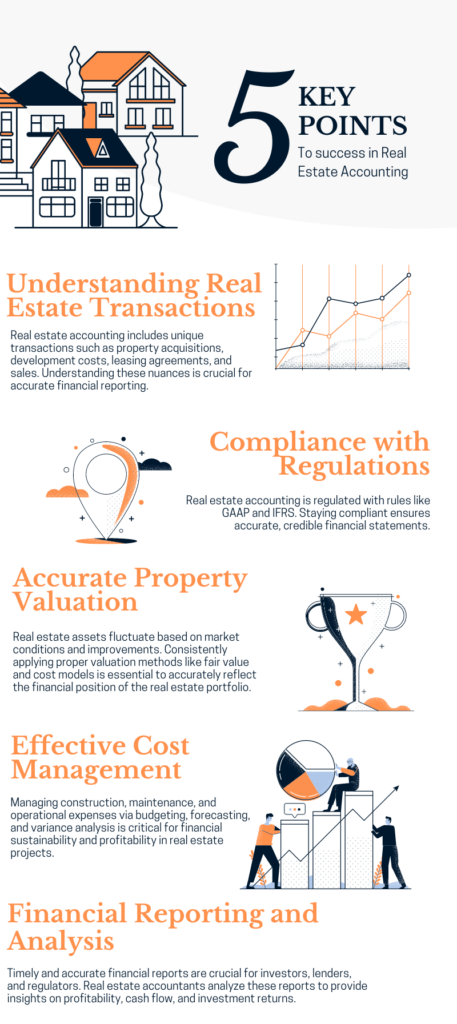
The Role of a Real Estate Accounting Specialist in Portfolio Management
- July 22, 2024
- OHI

Real estate portfolio management is a complex and dynamic field that requires a specialized skill set to ensure successful financial oversight and strategic decision-making. Among the key players in this arena is the real estate accounting specialist, whose expertise is crucial for maintaining the financial health and efficiency of real estate portfolios. This blog explores the various roles and responsibilities of a real estate accounting specialist and highlights their importance in portfolio management.

One of the primary responsibilities of a real estate accounting specialist is to ensure accurate and timely financial reporting. This involves preparing and maintaining financial statements, including balance sheets, income statements, and cash flow statements. These documents provide a snapshot of the financial health of the real estate portfolio, enabling stakeholders to make informed decisions.
Key Financial Reports
By meticulously preparing these reports, real estate accounting specialists ensure that portfolio managers have a clear and accurate understanding of their financial position.
Effective budgeting and forecasting are vital for the successful management of a real estate portfolio. Real estate accounting specialists play a crucial role in developing budgets that reflect the portfolio’s financial goals and operational needs. They also create financial forecasts that project future income, expenses, and cash flows based on historical data and market trends.
Budgeting Process
Forecasting Techniques
By providing accurate budgets and forecasts, real estate accounting specialists help portfolio managers plan effectively and make strategic decisions.
Real estate portfolios are subject to various regulatory requirements and compliance standards. Ensuring adherence to these regulations is a critical responsibility of real estate accounting specialists. They must stay updated on the latest laws and regulations affecting real estate accounting and ensure that all financial practices and reports comply with these standards.
Key Compliance Areas
By ensuring compliance, real estate accounting specialists help protect the portfolio from legal risks and financial penalties.
Effective cash flow management is essential for the financial health of a real estate portfolio. Real estate accounting specialists monitor and manage cash flows to ensure that the portfolio has sufficient liquidity to meet its obligations and invest in growth opportunities.
Cash Flow Strategies
By optimizing cash flows, real estate accounting specialists help maintain the financial stability and growth potential of the portfolio.
Real estate investments inherently carry various risks, including market volatility, property depreciation, and economic downturns. Real estate accounting specialists play a crucial role in identifying, assessing, and mitigating these risks.
Risk Management Techniques
By effectively managing risks, real estate accounting specialists help safeguard the portfolio’s assets and ensure long-term sustainability.
The adoption of advanced technology and automation tools is transforming the field of real estate accounting. Real estate accounting specialists leverage these tools to enhance efficiency, accuracy, and transparency in financial management.
Key Technologies
By embracing technology, real estate accounting specialists can focus on strategic activities and provide more value to portfolio management.
Effective collaboration and communication are essential for the successful management of a real estate portfolio. Real estate accounting specialists work closely with various stakeholders, including portfolio managers, property managers, investors, and regulatory authorities.
Key Collaborative Activities
By fostering strong relationships and open communication, real estate accounting specialists ensure that all stakeholders are aligned and informed.
The role of a real estate accounting specialist is multifaceted and critical to the successful management of real estate portfolios. From financial reporting and budgeting to compliance and risk management, these specialists provide the expertise and insights needed to navigate the complexities of real estate investments. By leveraging technology, fostering collaboration, and maintaining a focus on accuracy and transparency, real estate accounting specialists play a vital role in ensuring the financial health and growth of real estate portfolios. As the real estate industry continues to evolve, their contributions will remain indispensable to achieving strategic objectives and maximizing returns.
Contact us for a customized NO OBLIGATION proposal for outsourcing your accounting activities.







